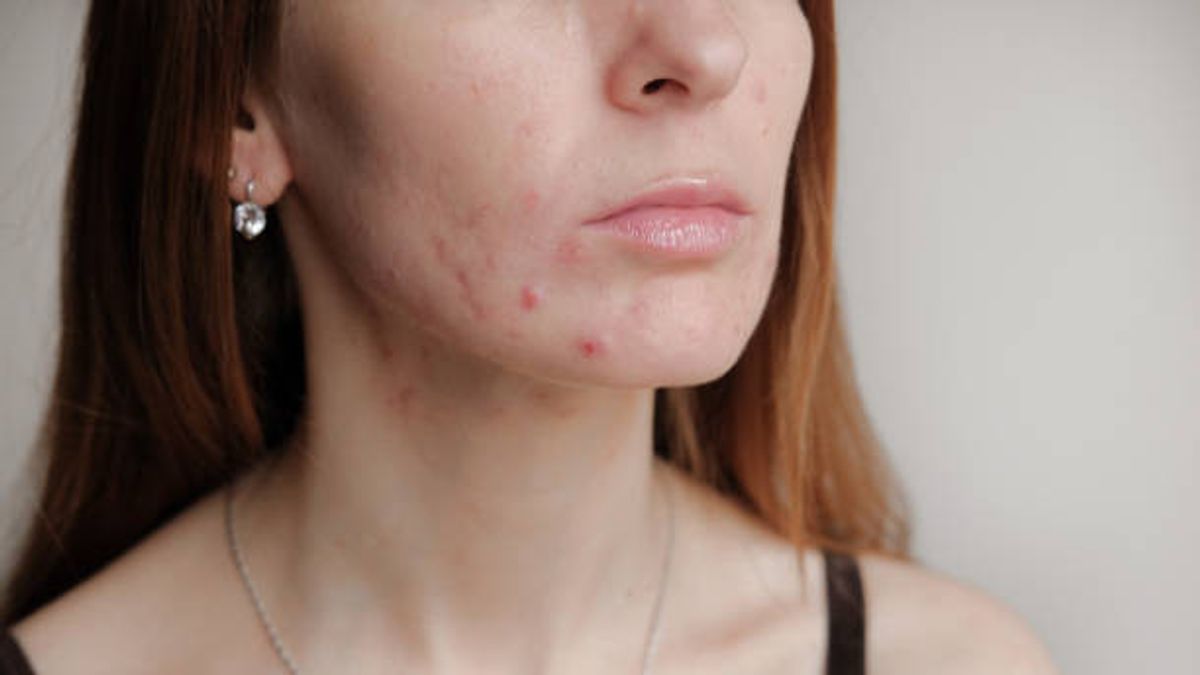JAKARTA - Everyone must have experienced acne problems. The growth of acne on the body is a natural thing, especially the face. Acne is not only a sign of clogged pores. Stress can also affect the growth of acne.
During times of stress, stress hormones increase and trigger the oil glands to produce more oil, which then triggers acne. Hormones also play the same role, as reported by Byrdie, Friday, July 29.
If acne appears during your period, you are most likely experiencing hormonal acne, not stress acne. Hormonal changes, especially increased androgen levels, have a similar effect on the oil glands.
The difference is tracking acne triggers. For example, stress acne appears when mental health is unstable. While hormonal acne comes closer to the monthly menstrual cycle.
In addition, the location of stress acne can vary. If you usually have acne in the same place (around your chin or jaw), chances are that your acne is hormonal.
In contrast to stress acne, which usually appears in the oiliest areas around your face, such as the t-zone. Acne is usually accompanied by enlarged pores, gloss, blackheads, whiteheads, and uneven or rough skin. Ordinary acne does not appear with accompanying symptoms. Meanwhile, stress acne is often accompanied by signs such as redness and itching.
Emotional stress triggers an increase in the release of the stress hormone cortisol. Increased cortisol triggers a systemic response in the body that has the potential to affect the immune system, digestive system, reproductive system, and growth process.
Cortisol is key in causing stress acne as well. When cortisol levels rise, they interfere with hormone levels that regulate sebum balance and lead to clogged pores and acne.
More oil products mean more clogged pores, and more clogged pores mean more breakouts. Stress acne can happen at any time, at any age.
You can get acne treatments, such as salicylic acid, without a prescription. Or you can compress the pimple with warm or cold water to reduce the pain or redness.
If stress acne seems to occur frequently, then try changing your skin care routine. Find a product that suits your skin.
Drink plenty of fluids, eat a healthy diet, and do things to manage stress, such as getting more sleep and relaxation. Finally, talk to a dermatologist if the condition bothers you a lot.
The English, Chinese, Japanese, Arabic, and French versions are automatically generated by the AI. So there may still be inaccuracies in translating, please always see Indonesian as our main language. (system supported by DigitalSiber.id)









